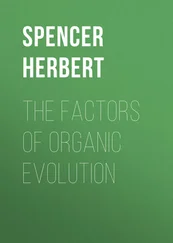believe they believe . It is not that they can truly conceive ten millions of special creations to have taken place, but that they
think they can do so . Careful introspection will show them that they have never yet realized to themselves the creation of even
one species. If they have formed a definite conception of the process, let them tell us how a new species is constructed, and how it makes its appearance. Is it thrown down from the clouds? or must we hold to the notion that it struggles up out of the ground? Do its limbs and viscera rush together from all the points of the compass? or must we receive the old Hebrew idea, that God takes clay and moulds a new creature? If they say that a new creature is produced in none of these modes, which are too absurd to be believed, then they are required to describe the mode in which a new creature
may be produced—a mode which does
not seem absurd; and such a mode they will find that they neither have conceived nor can conceive.
Should the believers in special creations consider it unfair thus to call upon them to describe how special creations take place, I reply that this is far less than they demand from the supporters of the Development Hypothesis. They are merely asked to point out a conceivable mode. On the other hand, they ask, not simply for a conceivable mode, but for the actual mode. They do not say—Show us how this may take place; but they say—Show us how this does take place. So far from its being unreasonable to put the above question, it would be reasonable to ask not only for a possible mode of special creation, but for an ascertained mode; seeing that this is no greater a demand than they make upon their opponents.
And here we may perceive how much more defensible the new doctrine is than the old one. Even could the supporters of the Development Hypothesis merely show that the origination of species by the process of modification is conceivable, they would be in a better position than their opponents. But they can do much more than this. They can show that the process of modification has effected, and is effecting, decided changes in all organisms subject to modifying influences. Though, from the impossibility of getting at a sufficiency of facts, they are unable to trace the many phases through which any existing species has passed in arriving at its present form, or to identify the influences which caused the successive modifications; yet, they can show that any existing species—animal or vegetable—when placed under conditions different from its previous ones, immediately begins to undergo certain changes fitting it for the new conditions . They can show that in successive generations these changes continue; until, ultimately, the new conditions become the natural ones. They can show that in cultivated plants, in domesticated animals, and in the several races of men, such alterations have taken place. They can show that the degrees of difference so produced are often, as in dogs, greater than those on which distinctions of species are in other cases founded. They can show that it is a matter of dispute whether some of these modified forms are varieties or separate species. They can show, too, that the changes daily taking place in ourselves—the facility that attends long practice, and the loss of aptitude that begins when practice ceases—the strengthening of passions habitually gratified, and the weakening of those habitually curbed—the development of every faculty, bodily, moral, or intellectual, according to the use made of it—are all explicable on this same principle. And thus they can show that throughout all organic nature there is at work a modifying influence of the kind they assign as the cause of these specific differences: an influence which, though slow in its action, does, in time, if the circumstances demand it, produce marked changes—an influence which, to all appearance, would produce in the millions of years, and under the great varieties of condition which geological records imply, any amount of change.
Which, then, is the most rational hypothesis?—that of special creations which has neither a fact to support it nor is even definitely conceivable; or that of modification, which is not only definitely conceivable, but is countenanced by the habitudes of every existing organism?
That by any series of changes a protozoon should ever become a mammal, seems to those who are not familiar with zoology, and who have not seen how clear becomes the relationship between the simplest and the most complex forms when intermediate forms are examined, a very grotesque notion. Habitually looking at things rather in their statical aspect than in their dynamical aspect, they never realize the fact that, by small increments of modification, any amount of modification may in time be generated. That surprise which they feel on finding one whom they last saw as a boy, grown into a man, becomes incredulity when the degree of change is greater. Nevertheless, abundant instances are at hand of the mode in which we may pass to the most diverse forms by insensible gradations. Arguing the matter some time since with a learned professor, I illustrated my position thus:—You admit that there is no apparent relationship between a circle and an hyperbola. The one is a finite curve; the other is an infinite one. All parts of the one are alike; of the other no parts are alike [save parts on its opposite sides]. The one incloses a space; the other will not inclose a space though produced for ever. Yet opposite as are these curves in all their properties, they may be connected together by a series of intermediate curves, no one of which differs from the adjacent ones in any appreciable degree. Thus, if a cone be cut by a plane at right angles to its axis we get a circle. If, instead of being perfectly at right angles, the plane subtends with the axis an angle of 89° 59´, we have an ellipse which no human eye, even when aided by an accurate pair of compasses, can distinguish from a circle. Decreasing the angle minute by minute, the ellipse becomes first perceptibly eccentric, then manifestly so, and by and by acquires so immensely elongated a form, as to bear no recognizable resemblance to a circle. By continuing this process, the ellipse passes insensibly into a parabola; and, ultimately, by still further diminishing the angle, into an hyperbola. Now here we have four different species of curve—circle, ellipse, parabola, and hyperbola—each having its peculiar properties and its separate equation, and the first and last of which are quite opposite in nature, connected together as members of one series, all producible by a single process of insensible modification.
But the blindness of those who think it absurd to suppose that complex organic forms may have arisen by successive modifications out of simple ones, becomes astonishing when we remember that complex organic forms are daily being thus produced. A tree differs from a seed immeasurably in every respect—in bulk, in structure, in colour, in form, in chemical composition: differs so greatly that no visible resemblance of any kind can be pointed out between them. Yet is the one changed in the course of a few years into the other: changed so gradually, that at no moment can it be said—Now the seed ceases to be, and the tree exists. What can be more widely contrasted than a newly-born child and the small, semi-transparent spherule constituting the human ovum? The infant is so complex in structure that a cyclopædia is needed to describe its constituent parts. The germinal vesicle is so simple that it may be defined in a line. Nevertheless a few months suffice to develop the one out of the other; and that, too, by a series of modifications so small, that were the embryo examined at successive minutes, even a microscope would with difficulty disclose any sensible changes. That the uneducated and the ill-educated should think the hypothesis that all races of beings, man inclusive, may in process of time have been evolved from the simplest monad, a ludicrous one, is not to be wondered at. But for the physiologist, who knows that every individual being is so evolved—who knows, further, that in their earliest condition the germs of all plants and animals whatever are so similar, "that there is no appreciable distinction amongst them, which would enable it to be determined whether a particular molecule is the germ of a Conferva or of an Oak, of a Zoophyte or of a Man;" [1]—for him to make a difficulty of the matter is inexcusable. Surely if a single cell may, when subjected to certain influences, become a man in the space of twenty years; there is nothing absurd in the hypothesis that under certain other influences, a cell may, in the course of millions of years, give origin to the human race.
Читать дальше












